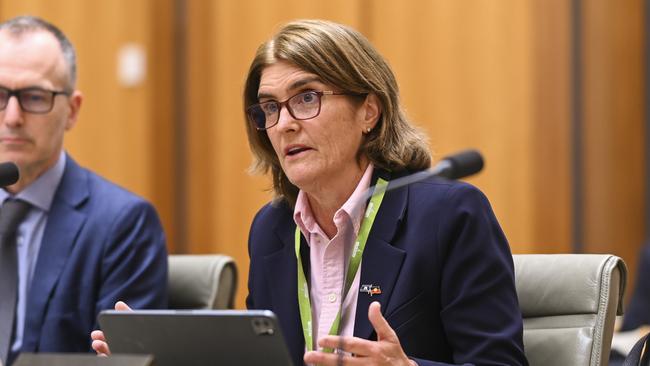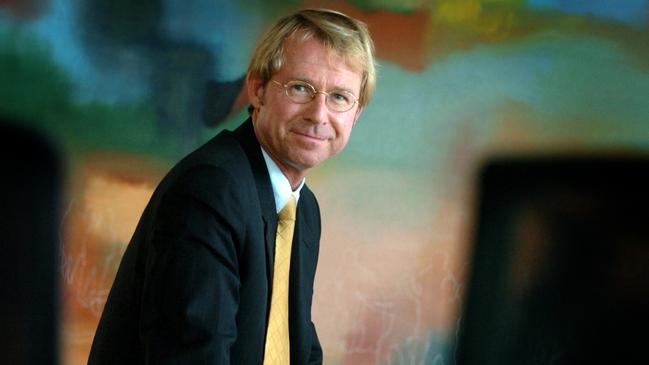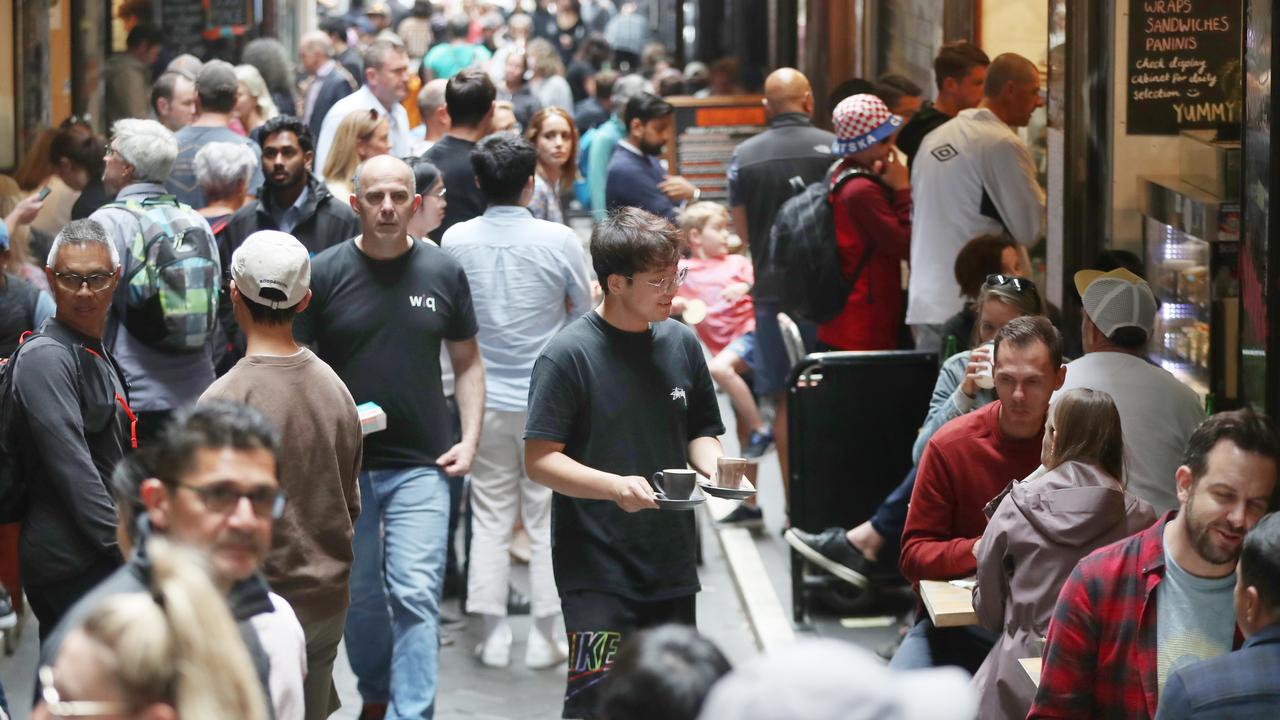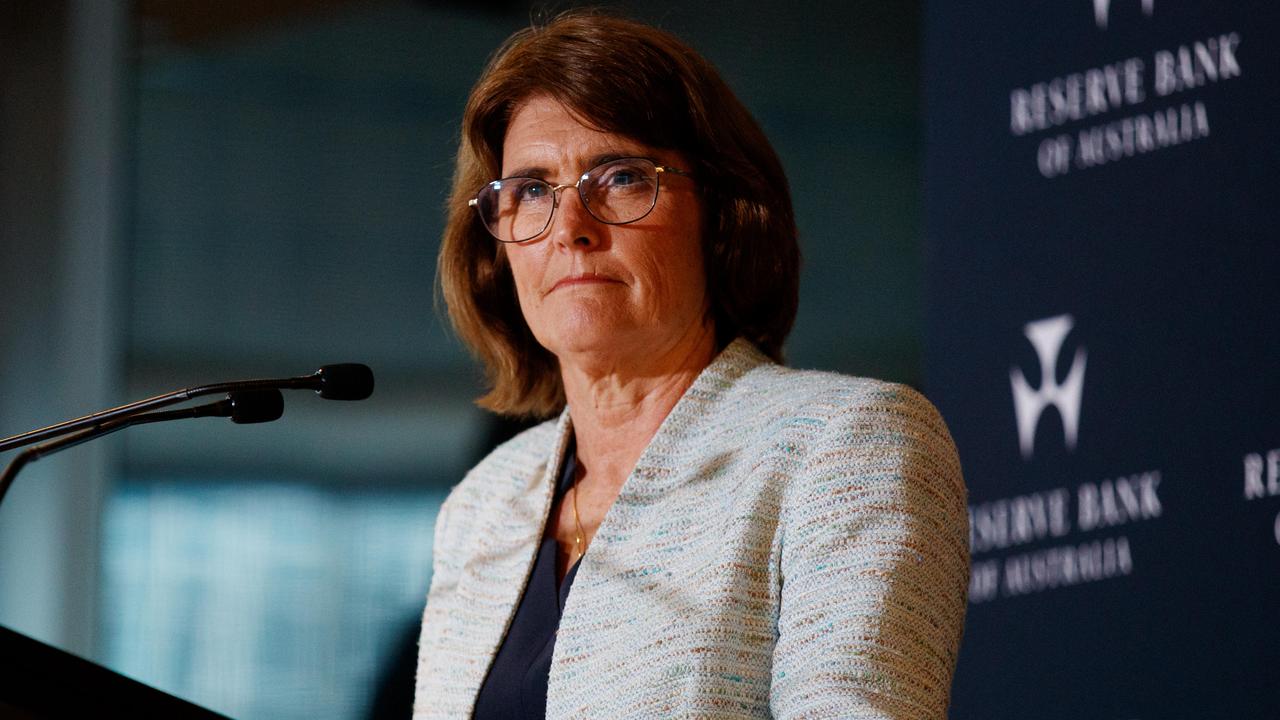Inflation falls to a two-year low of 4.3 per cent - but Australia is still at risk of recession
Inflation has hit a two-year low taking another interest rate rise off the table, but some economists are flagging there could still be a recession.

Interest Rates
Don't miss out on the headlines from Interest Rates. Followed categories will be added to My News.
Inflation has hit a near two-year low thanks to tumbling petrol and grocery prices, meaning another interest rate rise is likely off the table.
Despite the welcome news for consumers and homeowners, economists are flagging the risk of a recession in Australia remains.
Data released today shows that for the 12 months to November, the consumer price index (CPI), which measures inflation, fell to 4.3 per cent, below market expectations of 4.4 per cent.
It was also below the CPI figure for October of 4.9 per cent.
The slowdown in inflation has all but extinguished the chance that the Reserve Bank of Australia (RBA) will raise interest rates at its next meeting on February 6.
Financial markets put the chance of an interest rate rise in February at just three per cent, with the RBA expected to keep interest rates on hold at 4.35 per cent as the fall in inflation appears to be tracking ahead of the Bank’s expectations.
In its Statement on Monetary Policy published in November 2023, the RBA forecast that inflation would drop to 4.25 per cent by December 2023.
The data for December will be released on January 31.
Falls in food and petrol prices were key drivers behind the fall in inflation, while house prices, rents, insurance, and alcohol and tobacco prices continue to put upward pressure on inflation.
The next move in interest rates is expected to be down, with financial markets pricing in an interest-rate cut by August.

However, respected economist Shane Oliver, from AMP, has warned that the risk of a recession in Australia is around 40 per cent as the economy continues to slow down.
In a note, he said: “The risk of recession is high reflecting the lagged impact of rate hikes.”
“It’s hard to see the biggest rate hiking cycle since the 1980s not having a major impact.”
“It’s hard to believe there’s not more to come in terms of weakness in the economy and there’s a risk that we slide into recession.”
However, he added that if Australia does fall into a recession – defined as two consecutive quarters of negative growth – this year, it should be mild.
Dr Oliver concluded that if Australia hasn’t fallen into a recession or severe downturn by the middle of 2024, the risk of us doing so “will recede from there”.

The sentiment that Australia could slide into a recession is shared by KPMG chief economist Brendan Rynne.
He told The Australian that the resilience we saw in the Australian economy in 2023 “is not going to hold up in the first half of 2024”.
“I’m expecting virtually zero growth for the December quarter, and meagre growth for the first two quarters of 2024,” Dr Rynne said.
Originally published as Inflation falls to a two-year low of 4.3 per cent - but Australia is still at risk of recession




